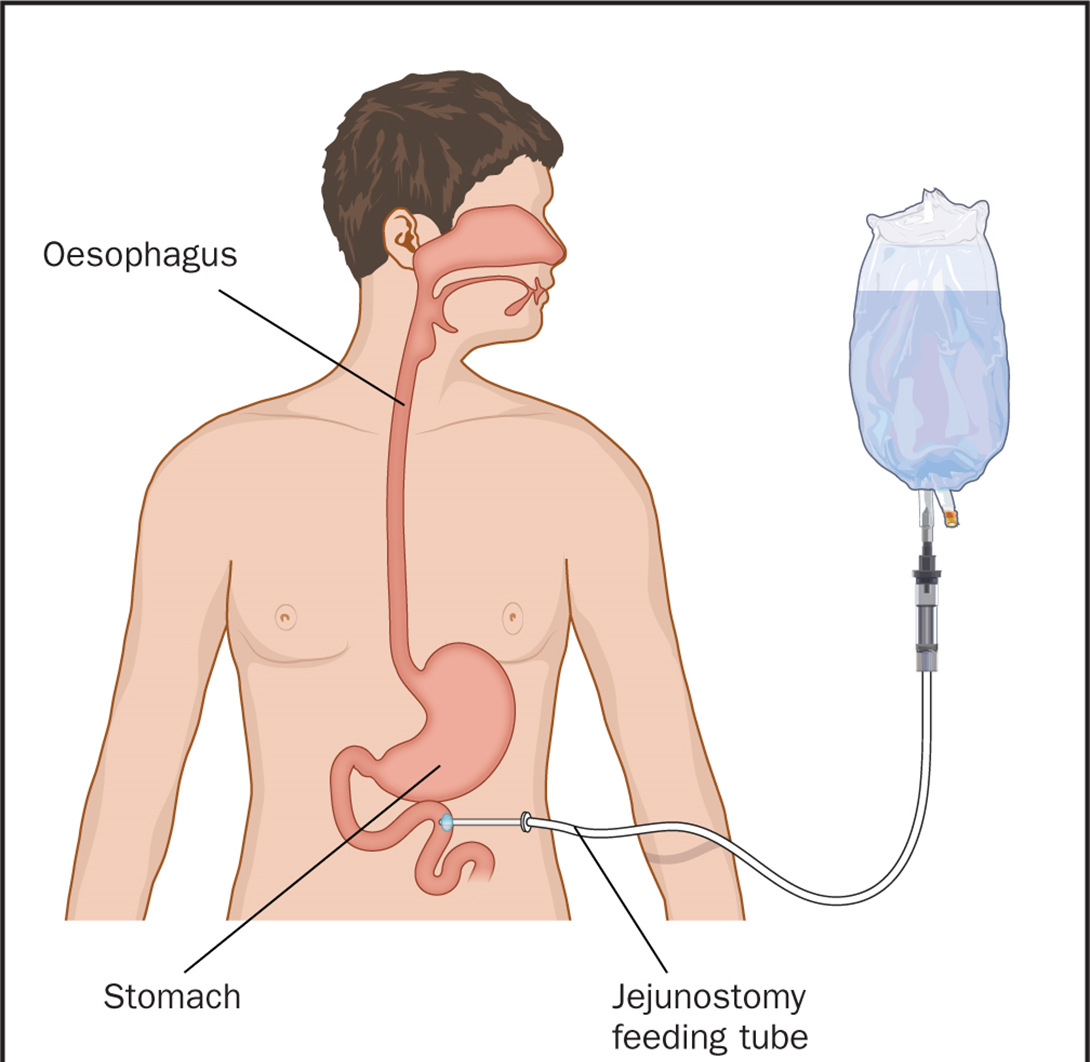A nurse is caring for a client who has acute kidney injury and has been prescribed total parenteral nutrition (TPN). When educating the client on the use of TPN, which of the following information should the nurse include?
The TPN is needed to bypass your gastrointestinal tract.
The TPN will have higher levels of vitamins than the recommended daily intake.
The TPN will ensure that your glucose level stays within the expected range.
The TPN will be higher in fats and protein, but lower in carbohydrates.
The Correct Answer is A
Choice A reason: TPN is a form of nutrition that is delivered directly into the bloodstream through a central venous catheter. It is used for clients who have impaired or nonfunctional gastrointestinal tracts, such as those with acute kidney injury, bowel obstruction, or short bowel syndrome.
Choice B reason: The TPN does not necessarily have higher levels of vitamins than the recommended daily intake. The TPN is individually tailored to meet the client's nutritional needs, which may vary depending on their condition, weight, and laboratory values.
Choice C reason: The TPN does not ensure that the client's glucose level stays within the expected range. In fact, TPN can cause hyperglycemia due to the high concentration of dextrose in the solution. The client's blood glucose level should be monitored frequently and insulin should be administered as prescribed to prevent complications.
Choice D reason: The TPN is not higher in fats and protein, but lower in carbohydrates. The TPN contains a balanced mixture of macronutrients, including carbohydrates, proteins, and lipids, as well as micronutrients, such as electrolytes, vitamins, and minerals. The ratio of these components may vary depending on the client's nutritional needs and goals.
Nursing Test Bank
Naxlex Comprehensive Predictor Exams
Related Questions
Correct Answer is ["B","C","D"]
Explanation
Choice A reason: Administering antiemetics following the meal is not an appropriate action for a client who is at risk for malnutrition. Antiemetics are medications that prevent or treat nausea and vomiting, which can interfere with oral intake and hydration. However, antiemetics should be given before the meal, not after, to reduce the likelihood of postprandial nausea and vomiting. ¹²
Choice B reason: Providing mouth care before feeding is an appropriate action for a client who is at risk for malnutrition. Mouth care can improve the client's appetite, taste, and comfort, as well as prevent oral infections and dental problems that can affect food intake. ³⁴
Choice C reason: Assessing for pain prior to mealtime is an appropriate action for a client who is at risk for malnutrition. Pain can reduce the client's appetite, mood, and ability to eat comfortably. The nurse should assess the client's pain level and provide adequate pain relief before offering food. ⁵⁶
Choice D reason: Removing the bedpan from the client's sight is an appropriate action for a client who is at risk for malnutrition. The presence of a bedpan or other unpleasant stimuli can cause the client to lose appetite, feel nauseated, or associate food with negative emotions. The nurse should create a pleasant and comfortable environment for the client to eat. ⁷⁸
Choice E reason: Discouraging snacks between meals is not an appropriate action for a client who is at risk for malnutrition. Snacks can provide additional calories, protein, and micronutrients that the client may not get from regular meals. Snacks can also help prevent hunger, fatigue, and hypoglycemia between meals. The nurse should encourage the client to have healthy snacks that are high in energy and nutrient density.
Correct Answer is D
Explanation
Choice A reason: Abdominal distention is a possible complication of enteral nutrition, as it may indicate gas accumulation, constipation, or intolerance to the formula. However, it is not the greatest risk to the client, as it can be prevented or managed by adjusting the formula, rate, or volume of the feeding, or by administering medications or enemas.
Choice B reason: Fluid overload is a possible complication of enteral nutrition, as it may indicate excessive fluid intake, renal impairment, or heart failure. However, it is not the greatest risk to the client, as it can be prevented or managed by monitoring the fluid balance, electrolytes, and vital signs, or by administering diuretics or fluid restriction.
Choice C reason: Glycosuria is a possible complication of enteral nutrition, as it may indicate hyperglycemia, diabetes, or infection. However, it is not the greatest risk to the client, as it can be prevented or managed by monitoring the blood glucose, urine output, and signs of infection, or by administering insulin or antibiotics.
Choice D reason: Tube obstruction is the greatest risk to the client, as it may indicate clogging, kinking, or twisting of the tube, which can impair the delivery of the nutrition and medication, and cause aspiration, infection, or perforation. Tube obstruction can be prevented by flushing the tube with water before and after each feeding or medication, and by using a syringe or a pump to administer the formula. Tube obstruction can be managed by using warm water, carbonated beverages, or pancreatic enzymes to unclog the tube, or by replacing the tube if necessary.

Whether you are a student looking to ace your exams or a practicing nurse seeking to enhance your expertise , our nursing education contents will empower you with the confidence and competence to make a difference in the lives of patients and become a respected leader in the healthcare field.
Visit Naxlex, invest in your future and unlock endless possibilities with our unparalleled nursing education contents today
Report Wrong Answer on the Current Question
Do you disagree with the answer? If yes, what is your expected answer? Explain.
Kindly be descriptive with the issue you are facing.
